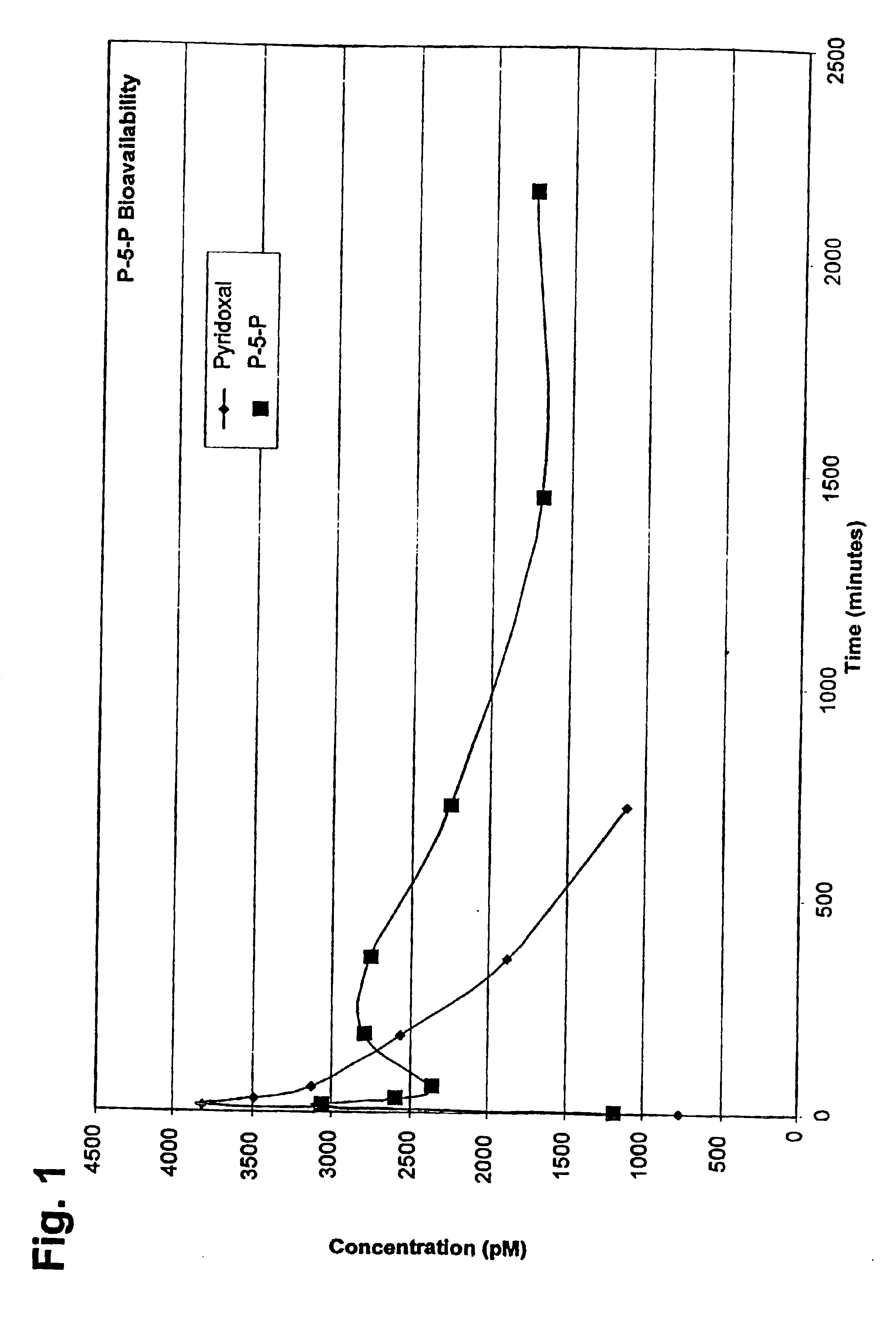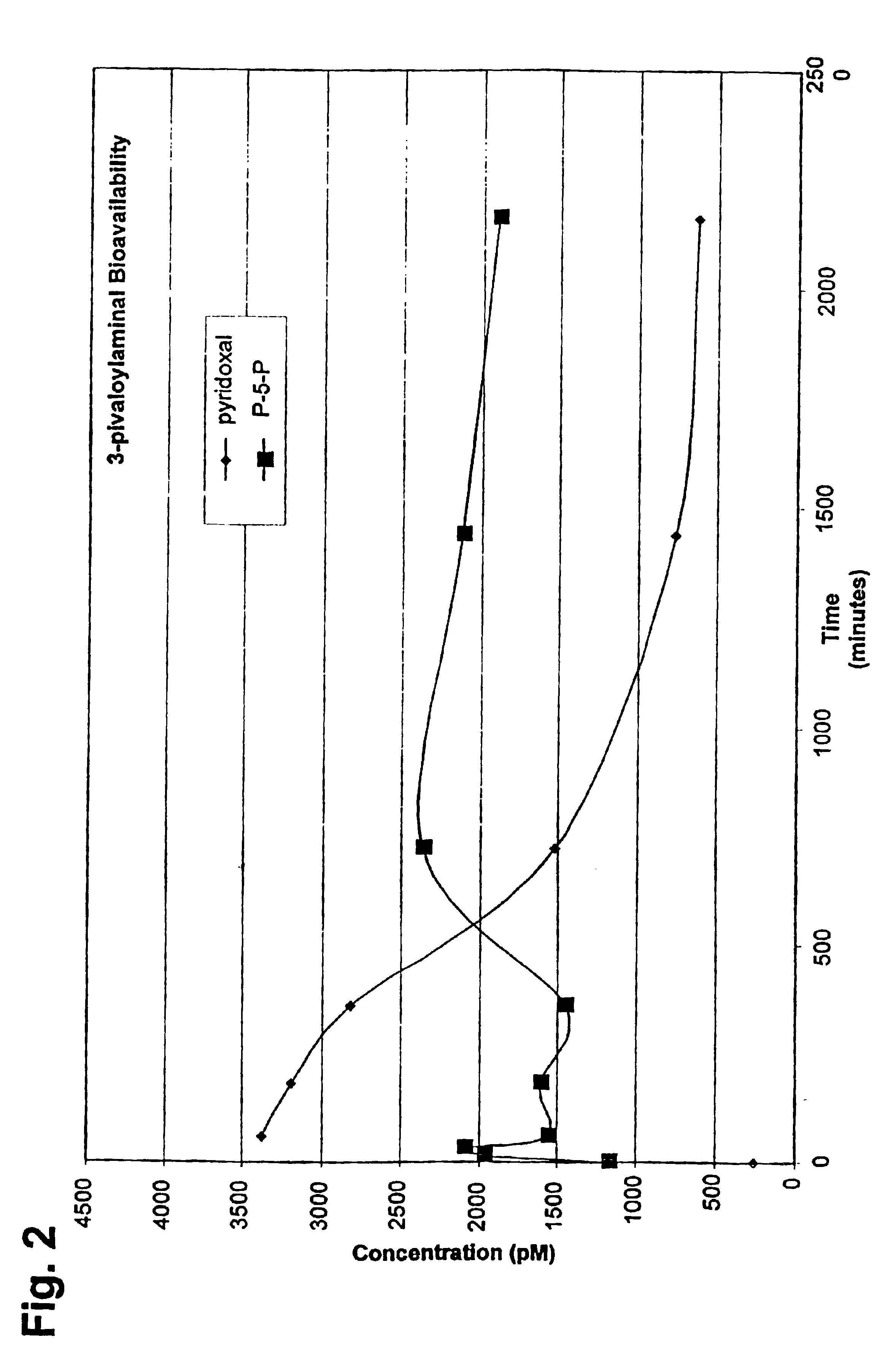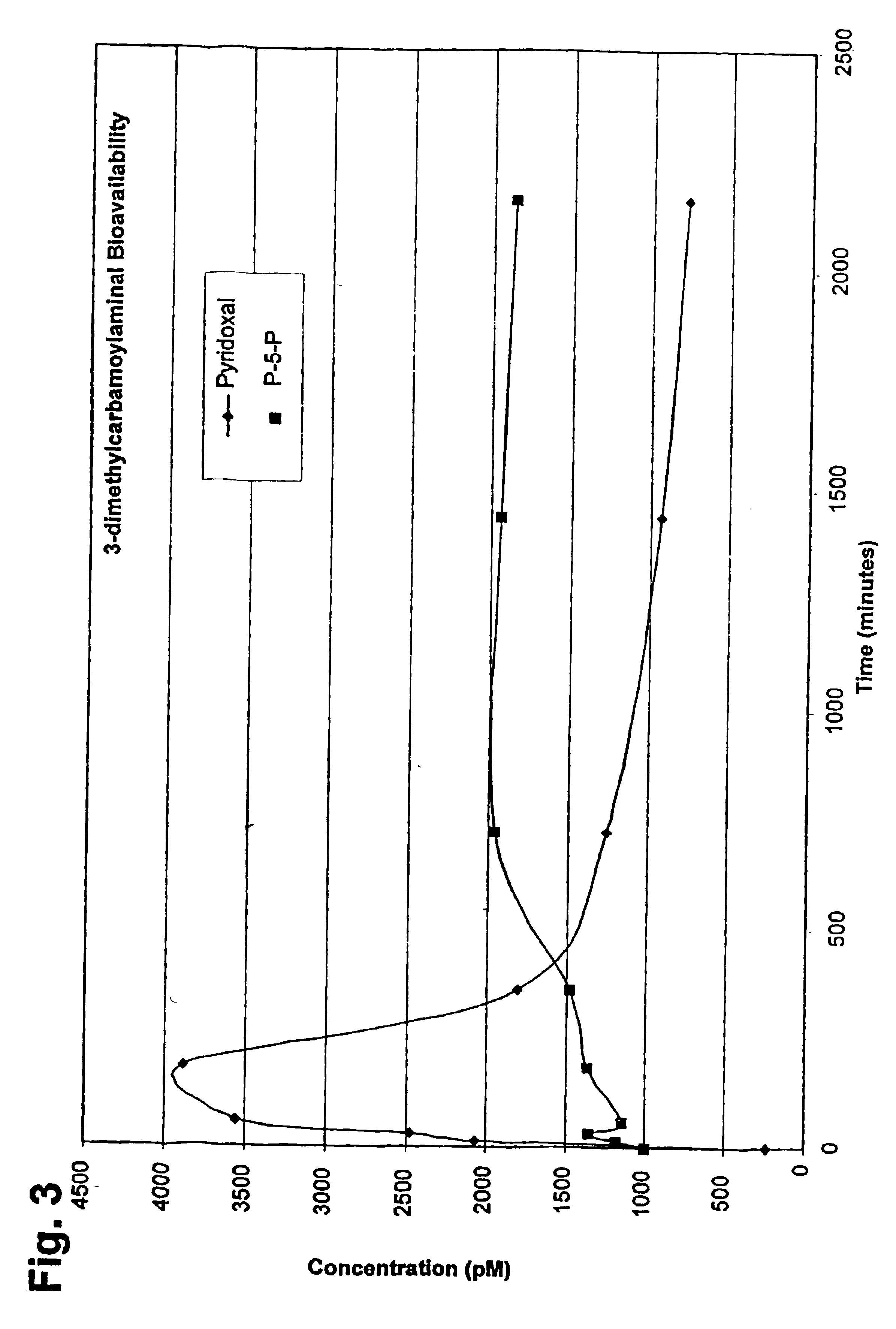Treatment of cerebrovascular disease
a cerebrovascular disease and treatment method technology, applied in the direction of cardiovascular disorders, biocide, drug compositions, etc., can solve the problems of infarction of brain tissue, physical disruption of brain tissue, and pressure on the surrounding brain area
- Summary
- Abstract
- Description
- Claims
- Application Information
AI Technical Summary
Benefits of technology
Problems solved by technology
Method used
Image
Examples
example 1
Synthesis of di-t-butyl (α4,3-O-isopropylidene-3-hydroxy-4-hydroxymethyl-2-methyl-5-pyridyl)hydroxymethylphosphonate
Di-tert-butyl phosphite (16.3 g, 84 mmol) was added to a solution of NaH (3.49 g, 60%, 87.2 mmol) in THF (60 mL) under nitrogen at 0° C. The temperature of the resulting solution was raised to room temperature and the solution stirred for 15 min, then cooled to 0° C. again. To this solution, (α4,3-O-isopropylidene-3-hydroxy-4-hydroxymethyl-2-methyl-5-pyridyl)methanal (Kortynk et al., J. Org. Chem., 29, 574-579 (1964)) (11.41 g, 55.05 mmol) in THF (30 mL) was slowly added then the temperature raised to room temperature again and stirring continued for 2 h. The reaction was quenched by adding saturated NaHCO3 (40 ml), and diluted with diethyl ether (200 mL). The ether layer was separated, washed with saturated aqueous NaHCO3 (40 ml, 5%), then saturated brine (3×20 mL). The ether layer was dried (MgSO4), filtered and evaporated to give crude product as a colorless solid. ...
example 2
Synthesis of dibenzyl (α4,3-O-isopropylidene-3-hydroxy-4-hydroxymethyl-2-methyl-5-pyridyl)hydroxymethylphosphonate
Dibenzyl phosphite (1.89 g, 9.62 mmol) was mixed with the (α4,3-O-isopropylidene-3-hydroxy-4-hydroxymethyl-2-methyl-5-pyridyl)methanal (Kortynk et al., J. Org. Chem., 29, 574-579 (1964)) (1.00 g, 4.81 mmol) and stirred at room temperature for an hour. To this thick syrup was added activated basic alumina (1 g). The reaction mixture was then stirred at 80° C. for one hour. The reaction mixture was diluted with dichloromethane (50 mL), and filtered through Celite to remove alumina. The dichloromethane solution was washed with saturated, aqueous NaHCO3 (20 mL), then saturated brine (3×10 mL). The dichloromethane layer was dried (MgSO4), filtered and evaporated to give crude product as a colorless solid. The crude product was purified by silica gel column chromatography, using ether:hexanes (1:2) as eluent to give 1.3 g (58%).
1H NMR (CDCl3): 1.30 (3H, s), 1.45 (3H, s), 2.30 ...
example 3
Synthesis of (3-hydroxy-4-hydroxymethyl-2-methyl-5-pyridyl)hydroxymethyl Phosphonic Acid
The product of Example 1 above, of formula V, (10 g, 24.9 mmol) was dissolved in acetic acid (80% in water, 100 ml) and heated at 60° C. for 1 d. Colorless precipitate was formed, however, the reaction was not complete. Another 50 ml of 80% acetic acid in water was added to the mixture and the mixture stirred at 60° C. for another day. The solid was filtered off, washed with cold water, then methanol and dried to give a colorless solid (4.78 g, 77%).
1H NMR (D2O): 2.47 (3H, s), 4.75-4.79 (2H, m), 5.15-5.19 (1H, d), 7.82 (1H, s).
31P NMR (H-decoupled D2O): 14.87 (s).
This structure can be represented by formula:
PUM
 Login to View More
Login to View More Abstract
Description
Claims
Application Information
 Login to View More
Login to View More - R&D
- Intellectual Property
- Life Sciences
- Materials
- Tech Scout
- Unparalleled Data Quality
- Higher Quality Content
- 60% Fewer Hallucinations
Browse by: Latest US Patents, China's latest patents, Technical Efficacy Thesaurus, Application Domain, Technology Topic, Popular Technical Reports.
© 2025 PatSnap. All rights reserved.Legal|Privacy policy|Modern Slavery Act Transparency Statement|Sitemap|About US| Contact US: help@patsnap.com



